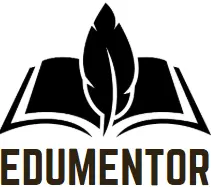These Scholarships.
Scholarships for low-income students and those from developing countries are financial aid programs designed to help bright but financially disadvantaged students pursue higher education. They may cover:
- Tuition fees
- Living expenses
- Travel costs
- Health insurance
- Books & study materials
These programs are offered by governments, universities, NGOs, and international organizations with the goal of reducing inequality in education.
They Exist.
- Global Education Gap – Students from developing nations often can’t afford international studies.
- Talent Utilization – Many talented students lack resources despite excellent academic performance.
- Capacity Building – Educating students abroad builds knowledge and skills they can bring back home.
- Diplomatic & Cultural Exchange – Scholarships promote global collaboration.
- UN SDGs Goal 4 – Ensure inclusive and equitable quality education for all.
Types of Scholarships for Low-Income & Developing Countries.
Fully Funded Government Scholarships.
- Cover tuition, travel, living allowance, health insurance.
- Target students from developing countries.
- Examples:
- Fulbright Program (USA)
- Chevening Scholarships (UK)
- DAAD Scholarships (Germany)
- Australia Awards
- Erasmus+ (EU)
- Japanese MEXT Scholarships
University-Specific Scholarships.
- Many top universities offer need-based or merit-based scholarships specifically for international students.
- Examples:
- Harvard University (USA) – Need-based full funding.
- Oxford University – Rhodes Scholarships (UK).
- ETH Zurich Excellence Scholarships (Switzerland).
- Sciences Po Emile-Boutmy Scholarship (France).
Regional / Development Scholarships.
- Funded by regional organizations, aimed at specific continents or groups of countries.
- Examples:
- VLIR-UOS (Belgium) – For students from Africa, Asia, Latin America.
- Aga Khan Foundation Scholarships – For developing countries, especially Asia & Africa.
- Joint Japan/World Bank Graduate Scholarship Program (JJ/WBGSP) – For students from developing countries in development-related fields.
NGO & Private Organization Scholarships.
- Philanthropic and private sector initiatives.
- Examples:
- MasterCard Foundation Scholars Program – For African students.
- OPEC Fund for International Development (OFID) Scholarship.
- Open Society Foundation (OSF) Scholarships.
Eligibility Criteria.
Varies by program, but common requirements:
- Must be from a developing or low-income country (often listed by World Bank/UN).
- Strong academic record (GPA, test scores).
- English or host country language proficiency (IELTS, TOEFL, or exemptions).
- Commitment to return home and contribute to development.
- Some are need-based, others merit-based, many combine both.
Benefits of These Scholarships.
Full financial support (tuition, travel, living).
Global exposure and networking.
Access to world-class education.
Opportunities for internships and research.
Increased career opportunities in home country.
Challenges Students Face.
High competition – Acceptance rates are very low.
Strict eligibility – Must prove financial need and academic merit.
Complicated applications – Essays, references, language tests, documents.
Commitment requirements – Some require students to return home after graduation.
Tips to Win Scholarships from Developing Countries.
- Start Early – Applications open 9–12 months before intake.
- Strong Personal Statement – Highlight financial need + ambition to help community.
- Gather References – From professors, employers, community leaders.
- Prepare for Language Tests – IELTS/TOEFL (or find scholarships without them).
- Apply Widely – Don’t limit to one country/university.
- Show Leadership & Impact – Many programs want future changemakers.
Famous Scholarships for Students from Developing Countries.
- Fulbright Foreign Student Program (USA) – Masters/PhD fully funded.
- Chevening Scholarships (UK) – 1-year Masters, leadership-focused.
- DAAD (Germany) – Masters/PhD for developing countries.
- Erasmus Mundus Joint Masters (Europe) – Fully funded masters across multiple EU universities.
- Australia Awards Scholarships – Full study + return commitment.
- Rhodes Scholarships (Oxford, UK) – Prestigious, highly competitive.
- JJ/WBGSP (World Bank) – Development-related fields.
- VLIR-UOS (Belgium) – For students from 29 developing countries.
- MasterCard Foundation Scholars Program (Africa) – Undergraduate & Masters support.
- Aga Khan Foundation – 50% grant + 50% loan model for developing nations.
Future Trends in Scholarships for Developing Countries.
- More Digital Access – Online application systems, virtual interviews.
- Remote / Hybrid Study Scholarships – Growing since COVID-19.
- STEM-Focused Funding – Big demand for tech, healthcare, climate studies.
- Public-Private Partnerships – Corporations (Google, Microsoft) offering scholarships.
- SDG-Aligned Fields – More funding in sustainability, clean energy, development studies.


